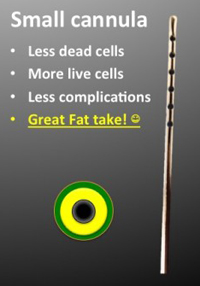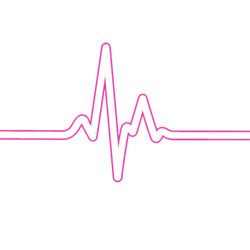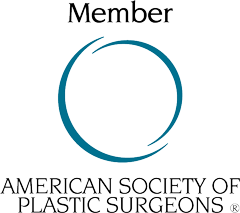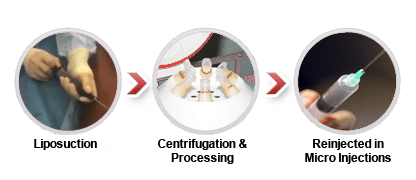What is a Fat transfer?
Fat transfer, also known as fat grafting, involves taking fat from one part of your body and injecting it into another to restore volume and create a natural appearance. This procedure works particularly well for facial areas like the cheeks, nasolabial folds, jawline, and under-eye regions.
The method restores lost volume due to aging, weight loss, or laser damage. In addition to creating a youthful appearance, the injected fat also nourishes the skin and boosts blood supply.
Evolution of Fat Grafting Procedure
Plastic Surgeons have performed fat grafting for over 100 years. You can read more about the history of fat grafting here.
In the last two decades, advances in fat grafting have more the procedure even more effective. In my Baltimore practice, I frequently use fat grafting to compliment other procedures such as the Brow Lift and lower facelift. It is also used as an alternative to the full Facelift procedure.
What problems does a Facial fat transfer address?
My face looks thin and sags - how do I get a youthful, glowing look?
Improve the Look of Your Skin and Facial Structure
Fat transfer can lift your facial structure and improve skin quality. If you experience any of the following, fat transfer could benefit you:
- fat loss from weight loss medication like Ozempic or Wegovy
- fat loss from laser damage
- fine lines and wrinkles
- crows feet
- under eye bags or dark circles
- sunken cheeks
- tired look
As we age, the dermis under our skin thins out, which can leave the face looking thin and has the effect of making the skin look like it sags.
A facial fat transfer adds fat to the area beneath your skin and has the effect of restoring the face to a more youthful state. Fat injections can also enhance blood circulation in the tissues.

This patient achieved facial rejuvenation with fat grafting alone. Watch her video here.
Address Fat Loss from Weight Loss or Laser Damage
If you have suffered fat loss from weight loss or laser damage, fat grafting is the most natural way to restore that volume.
How are fat injections different from injectable fillers like Juvederm?
Injectable facial fillers such as Juvederm only offer temporary results. The Fat Transfer procedure is permanent. In addition, the new fat can stimulate increased blood flow in your tissue.
Do fat injections last?
While some patients believe fat injections do not last, this is a misconception. After the initial swelling subsides—typically after about two weeks—you'll see a close approximation of the final results.
When performed correctly, fat injections result in a large percentage of the transferred fat cells surviving permanently.
I am very happy with my results!
How are Fat transfers performed?
Type of Anesthesia
Fat injections can be done under local or monitored IV sedation anesthesia. If you are having only one area treated, such as under the eyes, local anesthesia is often sufficient.
Surgical Technique
I exclusively use the Coleman technique, developed by Dr. Sydney Coleman in the 1980s. It includes three steps:
1) Fat Extraction

To get the best fat graft, I believe that slender cannulas with small holes should be used for fat extraction. This is further discussed in this article about fat grafting success starting with liposuction.
2) Fat Purification
The extracted fat is processed in a centrifuge to separate viable fat cells from impurities. This process ensures that only the healthiest fat cells are used for injection.
3) Fat injection
The purified fat is then injected into the target areas on your face. Common areas include under the eyes, cheeks, nasolabial folds, chin, lips, and jawline.
When done correctly, most of the transferred fat will integrate into the surrounding tissue, resulting in a fuller, more youthful look.
What are the preoperative requirements?

Local Anesthesia for Small Areas
If you are treating only one area, such as under the eyes, fat transfer can be done under local anesthesia.
No medical clearance is necessary, but you must stop smoking 3-4 weeks before surgery.
Monitored IV Sedation for Larger Areas
If you opt for IV sedation, you'll need:
- Medical clearance within 30 days of surgery
- A pre-op Appt with surgeon and signed Informed Consent
- Stop smoking 3-4 weeks prior
What is Fat transfer Post-Op recovery like?
After fat transfer, you may experience some discomfort and swelling. To help ensure the fat graft is successful, you should avoid putting stress on the treated areas for at least three weeks. This is essential for the newly injected fat to graft permanently.
Tips for Recovery
- Surgical Tape or Compression: Wear this on treated areas for five days.
- Sleep Position: Sleep on your back with your head elevated for the first week.
- Avoid Pressure: Refrain from rubbing or pressing on your face for two weeks.
- Post-Op Visit: Return for a follow-up visit one week after surgery.
- Back to Work: You can return to work within 1-2 weeks.
- Exercise: Resume physical activity as tolerated after two weeks.
What are the risks and possible complications?

- swelling
- irregular contours or uneven results from liposuction
- hematoma or seroma
- skin necrosis or fat necrosis
- touch up or secondary procedure to achieve desired results
- asymmetry
How much does Facial fat transfer cost?
The cost for a Facial fat transfer in 2024 varies depending on the area(s) to be injected, and the type of anesthesia used. Total cost estimates for surgeries performed in 2024 are as follows:
| Facial fat grafting | Local anesthesia | IV anesthesia |
|---|---|---|
| One area (ex: cheeks, under eyes) | $3,200 - $4,500 | $4,500 - $6,400 |
| Full face (ex: cheeks, under eyes, nasolabial folds) | not applicable | $7,500 - $8,600 |
Can I finance my Facial fat transfer?
Yes, financing options are available to help manage the cost of your facial fat transfer. Call us at 410-404-8100 or see our financing page for more information.
He is an amazing, caring and passionate doctor, who took the time to get to know me.
Ready to explore what's possible? I invite you to schedule a personal consultation, where we can talk about your goals, answer your questions, and create a plan that's uniquely yours.
Schedule Your Consultation Today!
Together, we'll find the perfect approach to help you look and feel your best.

Board Certified Plastic Surgery, ASPS Member
NOTICE
Patients depicted in our before and after galleries have provided their written consent to display their photos online. Every patient is unique, and surgical results may vary. Please contact us if you have any questions.


